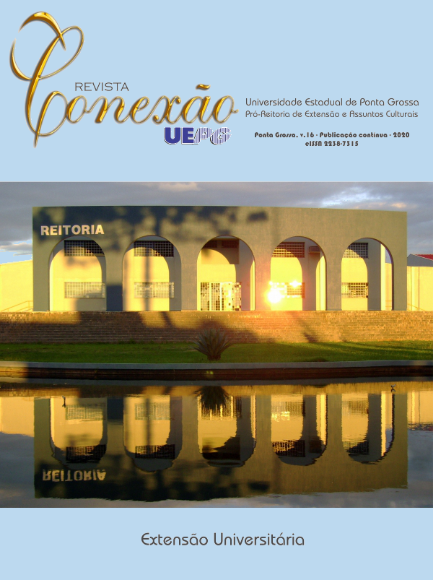CULTURAL EMANCIPATION AND HUMAN DEVELOPMENT: THE MUSICAL LANGUAGE AS A FORMATIVE ASSUMPTION IN A PEDAGOGY COURSE
DOI:
https://doi.org/10.5212/Rev.Conexao.v.16.15462.044Abstract
The analytical movement described reflects a formative experience bounded by a cultural project developed as a result of induced demand coming from students of the Pedagogy course at UFFS (in the Portuguese acronym) - Chapecó Campus. The project was approved in an institutional public notice to encourage culture and it was carried out in the second semester of 2018.2 and first semester of 2019; the target population were the undergraduate students of the course. The project was based on research and propositions, from which an initial formative possibility was built, with systematic studies and experiences in the form of workshops. The students involved in the activities indicated the relevance of such initiatives, given the contributions to teachers’ way of thinking and making in relation to the possibilities and the potential of music education and other languages. This exercise points to the need of discussions about such languages in the process of initial and continuing education of teachers working in Early Childhood Education and Early Years of Elementary School.
Downloads
Downloads
Published
Issue
Section
License
a) Authors retain copyright and grant the journal right of first publication with the work simultaneously licensed under a Creative Commons Attribution License that allows others to share the work with an acknowledgement of the work's authorship and initial publication in this journal.
b) By submitting an article to the Revista Conexão UEPG and having it approved, the authors agree to assign, without compensation, the following rights to the Journal: the rights of first publication and the rights to redistribute the article and its metadata to the indexing and reference services that the editors deem appropriate.
c) Readers are free to transfer, print out and use the articles published in the Journal, as long as there is always explicit mention to the author(s) and to the Revista Conexão UEPG and as long as there is no alteration of the original work. Any other use of the texts needs to be approved by the author(s) and by the Journal.






